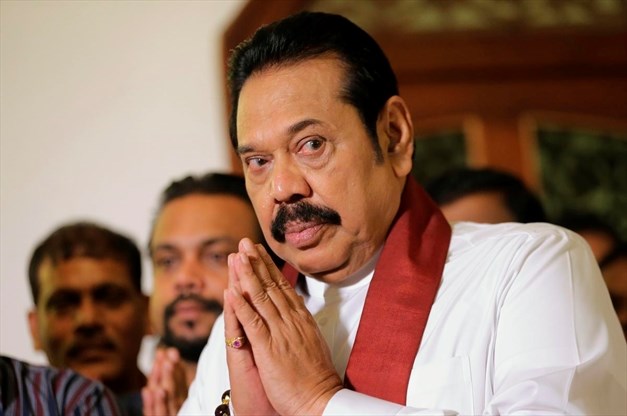
Sri Lanka's Prime Minister Mahinda Rajapaksa has resigned as violence erupted in the capital this morning.
Rajapaksa handed his resignation letter to his brother and Sri Lankan president Gotabaya Rajapaksa after Sri Lanka Podujana Peramuna (SLPP) supporters violently assaulted peaceful anti-government demonstrators who have occupied Galle Face in Colombo for 32 consecutive days this morning.
Effective immediately I have tendered my resignation as Prime Minister to the President.
— Mahinda Rajapaksa (@PresRajapaksa) May 9, 2022
?????? ??????? ????? ?????? ????? ???????????? ??? ??? ?????.
Mob attacks have broken out in Colombo as anti-government protestors were violently attacked and security forces fired water cannons.
"While emotions are running high in #lka, I urge our general public to exercise restraint & remember that violence only begets violence. The economic crisis we're in needs an economic solution which this administration is committed to resolving," Mahinda said in a tweet, just minutes before his resignation became public.
Several sources have confirmed to the Tamil Guardian that firecrackers were set off in suburbs across Colomb, celebrating Rajapaksa's resignation. Others on social media posted photographs of locals cooking kiribath to celebrate Rajapaksa's resignation.
?????? ??????? ???? ?????? ????????? ???????? ?????????????????, ??????? ???????????????? ?????? ???????? ??????? (???? ?????) ????????? ?????????????.
— Jaffna Troll (@JaffnaTroll) May 9, 2022
#SriLankaProtests #srilanka #lka pic.twitter.com/TwrA2wdmen
His resignation comes just hours after a massive crowd inside Temple Trees, the official residence of the prime minister, reportedly urged him not to resign. Reports indicate that members of the crowd then marched to Galle Face and attacked anti-government protestors.
"We need Mahinda" massive crowd inside Temple Trees urging Prime Minister to not to resign pic.twitter.com/oTn778l0aS
— NewsWire (@NewsWireLK) May 9, 2022
Rajapaksa was elected Sri Lanka’s prime minister in 2020.
In 2005, he first came to power as president and oversaw a massive expansion of Sri Lanka’s military. He launched an offensive that went on to kill tens of thousands of Tamil civilians and one that has been the subject of several United Nations reports.
He stands accused of war crimes, crimes against humanity and genocide.
In 2011, he was served a US court summons, under the US Torture Victim's Protection Act for extrajudicial killings. At the time the suit was dismissed as Rajapaksa was immune from litigation as a foreign head of state.
However, U.S. District Judge Colleen Kollar-Kotelly wrote in her ruling, "the plaintiffs' complaint contains shocking allegations of human rights abuses and violations of the United States and international law".
